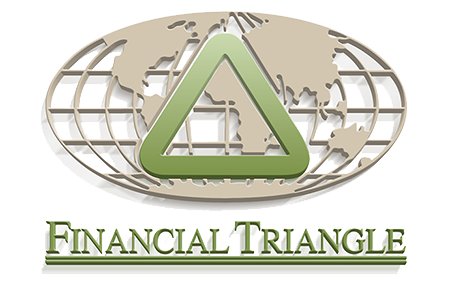FAQs for foreigners
1.Can I get a loan even if I do not expect to reside in the US but only plan to invest in real estate?
Yes! Foreigners can get loans for commercial or residential properties. However, usually, availability to come in and out the U.S. is required.
2. Am I still eligible for a loan even if I cannot provide US Income documentation or US tax returns?
Of course! Financial Triangle has created & sponsored programs to help NON-US residents or foreigners obtain real estate loans in a easy process with simple documentation.
3. Can I own more than one property in the states?
Yes! A foreigner can own and mortgage as many Properties that he/she/they can be qualified for.
4. Do I have to be in the US to close the transaction?
No, Financial Triangle with the affiliation of international couriers can deliver the final documents anywhere in the world the borrower(s) is as long as there is a consulate or US embassy to notarize the final documents.
5. At what time do I have to transfer the down payment?
It all depends on the real estate contract but typically most of the down payment could be transferred a couple days before the transaction is about to close from your American bank account. Your loan agent or title agent will let you know when to do so.
6. Who can choose a closing agent? And who are the closing agents?
Financial Triangle has a list of closing agents registered with our banks that speak multiple languages that borrower(s) can choose from. The closing agents, and occasionally lawyers, will be responsible to check all the documents and guaranty that transactions will be close free of liens, old taxes, or any liabilities that the previous owner had.
7. How much will the closing costs be and can I finance them?
Typically in the US, and depending the state, the closing costs are around about 3 to 5% of the loan amount: This will include all the documentary taxes, lawyer/closer fees, transfer taxes, recording, and a few more fees. A loan estimate will be provided before a commitment to any transaction.
Closing costs cannot be financed(unless is a refinance), this amount is in addition to the down payment, again the loan estimate will clearly show the details of the transaction.
8. Will I have an automatic payment including my monthly mortgage, property taxes and insurance?
Yes it's mandatory, the bank that it will be debited from must be a US bank.
9. Can I buy my properties under the name of corporations, LLCs or any other legal entities?
Yes! Either under a US domestic corporation (newly formed for that purpose only) and it can even be owned by a off shore corporation. The laws and requirements can be explained more clearly by contacting a lawyer specializing in this area.
10. How much taxes or any implications will I be held responsible for on the future sale of my property ?
Financial Triangle cannot give any legal or accounting advice. For more information about immigration law we recommend that you contact a law firm specializing in immigration and any questions regarding tax rules regulations and payment of taxes should be addressed to a certified public accountant.
FAQs for US residents
1. What is an appraisal?
An appraisal is a statement of property value made by an independent, licensed appraiser. It is done to insure that the value of the property is sufficient to secure the loan in the event that the borrower fails to repay the loan in accordance with the provisions of the mortgage contract. The value is set based on the home itself and on recent comparable sales of homes close to the subject property. The appraisal does not necessarily detects any defects in the property or on the title.
5. What is private mortgage insurance (PMI)?
Private mortgage insurance protects the lender from loss due to payment default by the borrower. It is used on conventional financing only. It may be paid in a lump sum at the time of settlement or in monthly installments as part of the mortgage payment. PMI is typically required when the amount of your loan exceeds 80% of the subject property’s value. This type of insurance should not be confused with mortgage life, credit life, or disability insurance which is designed to pay off a mortgage in the event of the borrower’s disability or death.
6. What is title insurance?
Title insurance protects the lender against loss due to problems or defects related to the title on the property being mortgaged. These problems would typically involve ownership claims against the property which were not identified by the title search. It is paid for with a one-time premium at the time of settlement.
7. What are escrows?
Escrows are funds collected with the borrower’s monthly payment and accumulated to pay for items such as property taxes or hazard insurance as they come due. Escrows are also collected at settlement to start the escrow account. Es-crowed funds can also be referred to as hold backs, reserves, or impounds.
10. What is the underwriting fee?
This fee covers the lender’s administrative costs in processing/underwriting the loan.
11. What is a flood certification/flood insurance?
A flood certification will identify a specific property as being within or not within a flood hazard area as defined by FEMA, a federal government agency. If the property is within a flood zone, you will be required to carry flood insurance, protecting you and the lender from loss due to flood damage.

